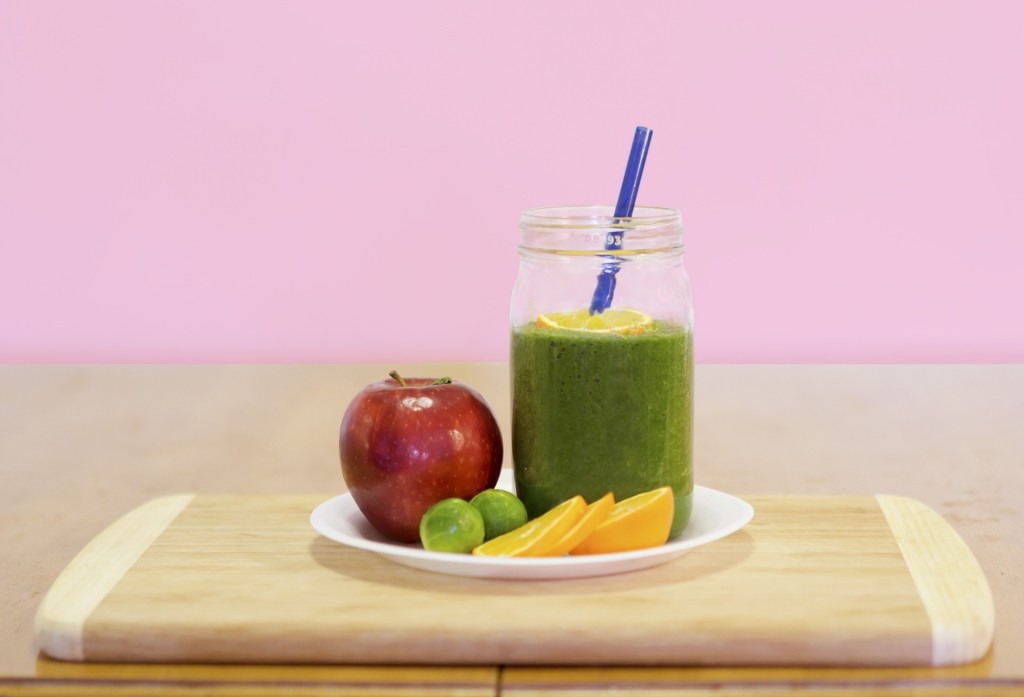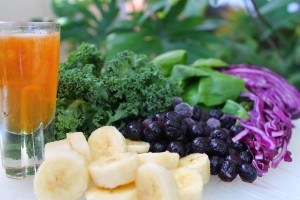We LOVE to make this fresh smoothies recipe in our house. Smoothies are a favorite after-school treat or weekend breakfast. We’ve tried a lot of different “recipes” (mainly just us playing around with ingredients), but I found many of them to have too much sugar and not enough nutrition. Or, they’re so healthy that they taste bland. Here are a few ways we make our smoothies tasty and healthy, plus my kids’ favorite new fresh smoothies recipe that we invented together: Sludge Smoothie.
Trade your yogurt for kefir
Smoothies by definition have more than just juice, and most of them have yogurt to boost their texture and nutrition. But even the best yogurts have a lot of sugar, both natural and added. Kefir, which is cultured milk, has about a third less sugar than yogurt, on average. It also has more active cultures than yogurt (more probiotics!), and it’s 99% lactose-free, which is great for people who are sensitive to dairy. It adds a sweet but tangy flavor and protein to your smoothie.
You can get plain kefir if you’d rather add your own sugar or sweetener, but I like to get the fruit-flavored ones. I find that when I do my own sweetening, I actually end up with a higher sugar count (and yes, honey and agave nectar count as sugar) than when I use pre-sweetened kefir. And it’s easier.
Add veggies
It’s easy to make a strawberry-banana smoothie, but if you want more fiber and nutrients, you’ll want to add veggies, too. I love adding spinach or kale to ours, but I’ve found that they don’t work with all fruit.
If you’re adding leafy greens, you should pair it with a strong-tasting fruit, like berries. A peach-kale smoothie might sound good, but it’s going to just taste like kale. I keep frozen mixed berries on hand, which have a stronger flavor. The combination of blackberries, blueberries, and strawberries masks the greens’ flavor and adds more nutrition.
You can use pre-packaged veggie juice, too, but be careful. When a plant is juiced, the fiber is thrown out, and most veggie juices add sweet fruit juice, like apple, to make them palatable. Your “veggie juice” can contain as much sugar as a fruit juice. You’re best off using whole veggies, but adding in a little carrot-orange juice is fine as long as you don’t overdo it (as we do in our recipe below.)
Add nutrients
Want more protein? You can buy flavorless protein powder, or add almond or peanut butter. Want Omega-3’s? Add a couple of tablespoons of flax seed. Want both? Add chia seeds, which have fiber and protein. The more you “beef up” your smoothie, the more healthy and filling it will be.
Keep the portions small
Even the healthiest smoothie still contains a lot of natural and added sugar (unless you use artificial sweeteners, which I don’t). I measure ours into 8-ounce glasses to control portions. We also don’t depend on a smoothie for a whole meal or snack. Instead, we like to pair it with something high-fiber and low-sugar, like whole wheat toast or crackers.
Fresh Smoothies Recipe: Sludge Smoothie
My kids named this smoothie “sludge” because the spinach and carrot juice give it a muddy color. It still tastes great, though, and it’s quickly become their favorite of our fresh smoothies recipes.
Makes 3 servings (about 1 cup each)
1/2 cup Orange-Carrot juice (we use Bolthouse Farms brand)
3/4 cup Blueberry Kefir
1 whole banana
1 cup frozen strawberries OR mixed berries
1/2 cup frozen spinach
1 tablespoon ground flax seed OR chia seeds
Nutrition Highlights (via myfitnesspal): Calories 129; Total Fat 2g; Potassium 364 mg; Total Carbohydrate 24 g; Dietary Fiber 3 g; Sugars 17 g; Protein 5 g; Vitamin A 62 %; Vitamin C 80 %; Calcium 11 %
Category: HealthTags: Elizabeth










